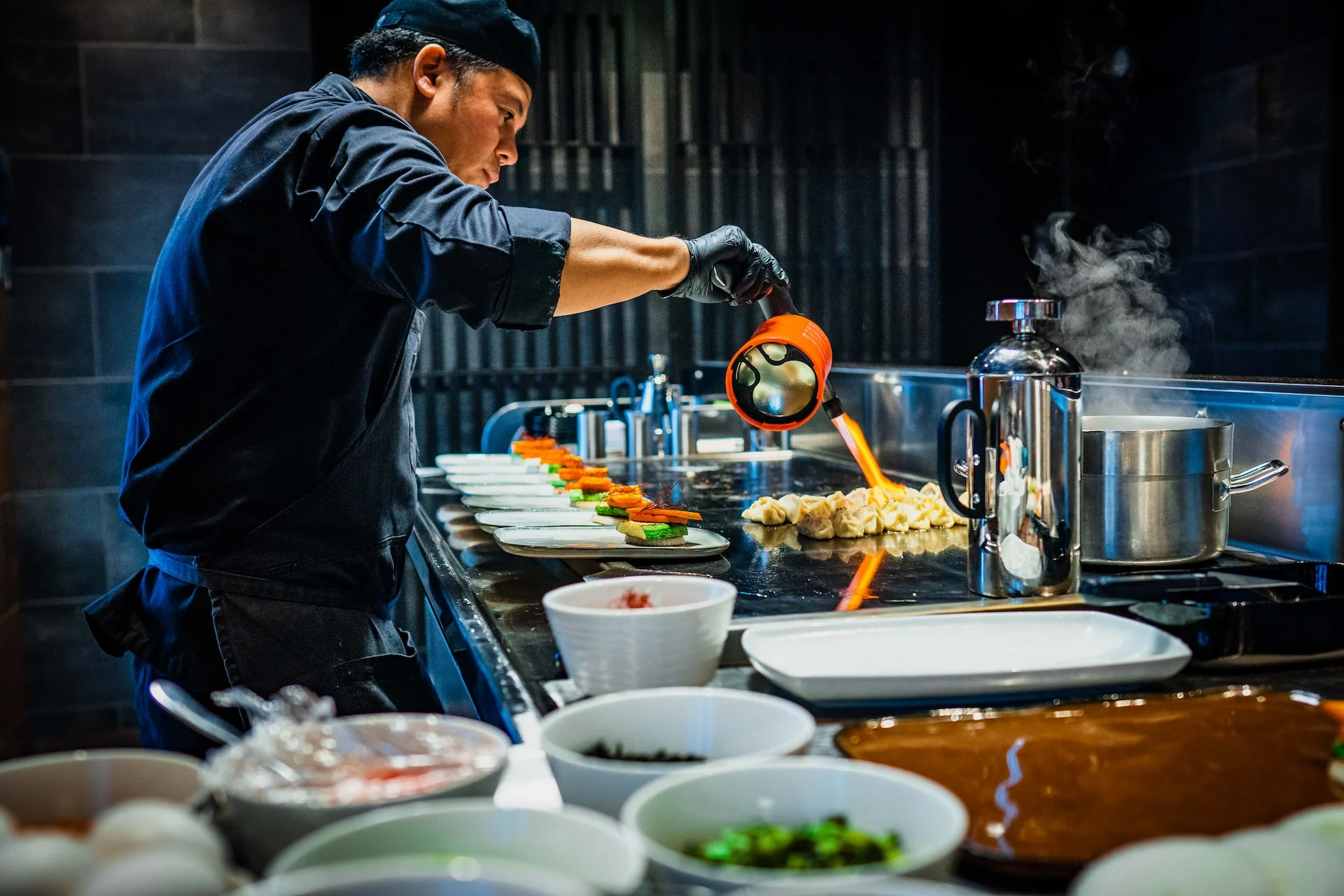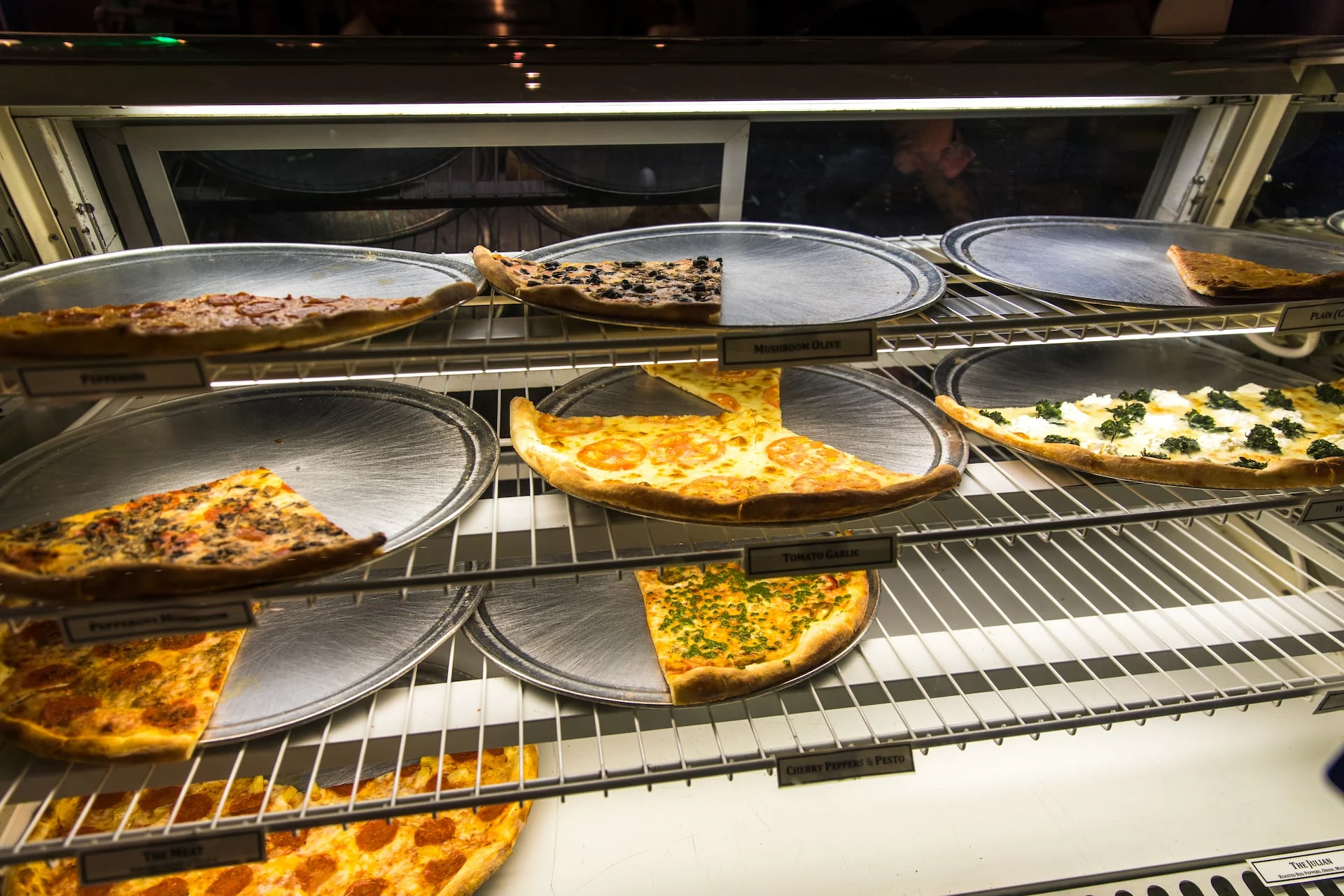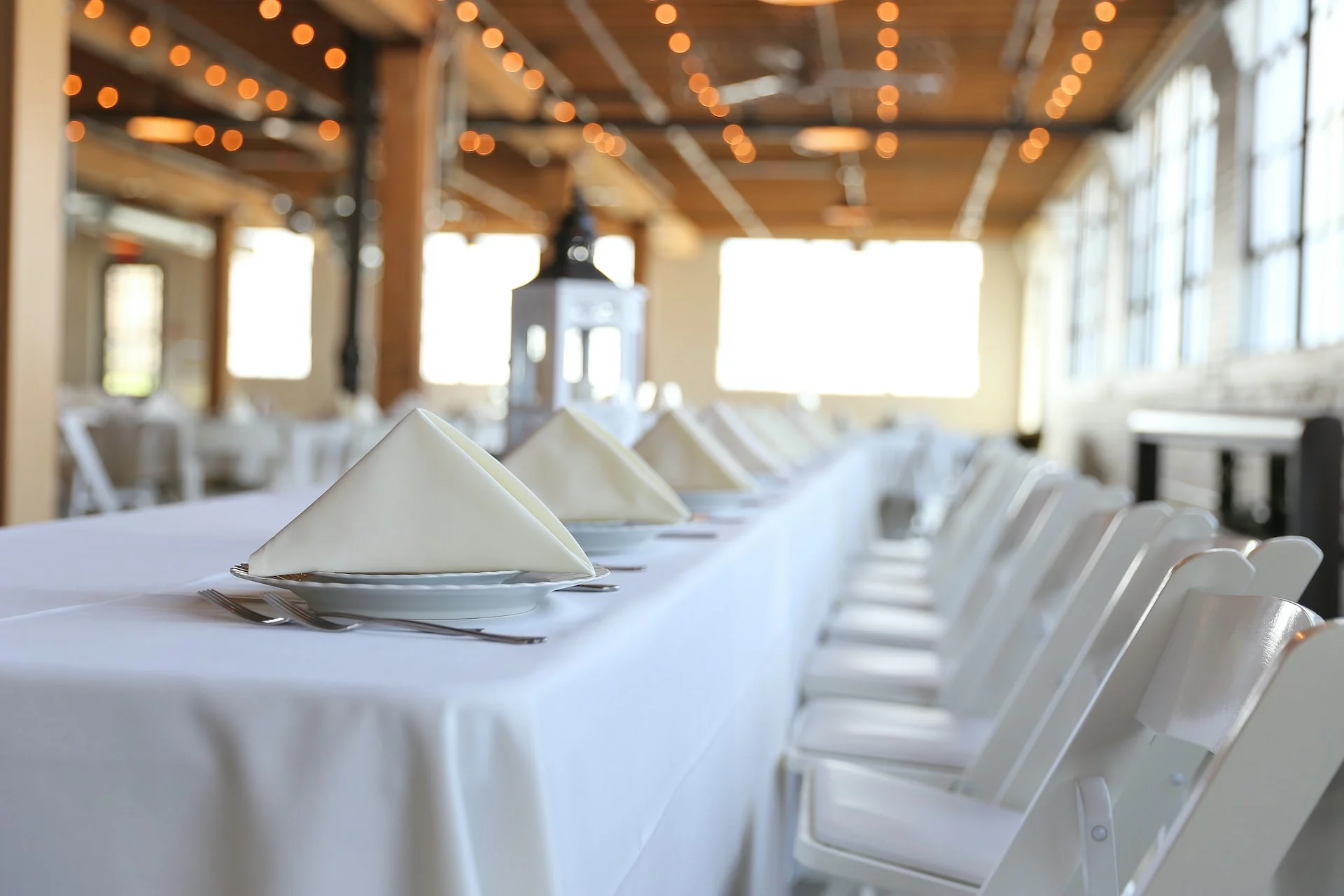Do you know who your catering business customers are? It’s an important question to consider if you want to be successful in this field and maximize your profits. People often think of private events like dinner parties and weddings when they think of caterers, but there is much more to the equation than that.
In this blog post, we’ll take a closer look at some additional groups of customers for a good catering businesses – including corporate clients, cafeterias, colleges/universities, event planners/venues, retail stores, hospitals & medical facilities – as well as detail each customer segment’s unique needs and expectations.
Whether you currently own a catering business or are looking into entering the industry soon, understanding who the main customers are (and what drives them) can give great insight on how best to target your services — helping make sure no opportunity slips through the cracks!
Corporate Customers
Corporate customers are one of the primary customers for a catering business. These are businesses or companies that are looking to host an event, meeting, or conference for their employees, clients, or stakeholders. Corporate events are typically high-end and require a certain level of professionalism and attention to detail. Corporate customers can be a lucrative market for catering businesses as they often have bigger budgets and can lead to long-term partnerships.

One of the key benefits of catering for corporate events is the potential for repeat business. Many companies host multiple events throughout the year, such as quarterly meetings, holiday parties, or client appreciation events. If a catering business can provide quality service and meet the expectations of the corporate customer, they are likely to be hired again for future events. Additionally, catering for corporate events can also lead to referrals from satisfied customers, which can help grow the business.
Another benefit of catering for corporate events is the potential for larger orders. Corporate events typically have a larger guest count than individual or social events, which means the catering business can potentially receive larger orders. This can help increase revenue and profitability for the business.
Catering for corporate events also provides an opportunity to showcase the business’s capabilities and professionalism. Corporate customers often expect a high level of service and attention to detail, which can help catering businesses improve their skills and reputation. Positive feedback and reviews from corporate customers can lead to more business opportunities in the future.
Examples of corporate events that a catering business may provide services for include:
- Meetings: Many companies hold meetings throughout the year, including quarterly, annual, or strategic planning meetings. These events may require catering for breakfast, lunch, or snacks.
- Conferences: Conferences are larger events that can last for several days and may include multiple meals and snack breaks throughout the day.
- Client Appreciation Events: Companies may host events to show appreciation for their clients or stakeholders. These events may require more elaborate catering services and may include alcohol and entertainment.
- Product Launches: Companies may launch a new product or service and host an event to showcase it to potential customers or clients. These events may require catering for a cocktail reception or dinner.
- Holiday Parties: Many companies host holiday parties for their employees and clients. These events may require catering for a variety of food and beverage options.
Corporate customers are an important market for catering businesses. Catering for corporate events can lead to repeat business, larger orders, and opportunities to showcase professionalism and capabilities. Understanding the needs and expectations of corporate customers can help catering businesses provide quality service and build long-term partnerships.
Nonprofit Customers
Nonprofit customers are another important customer segment for catering businesses. Nonprofits are organizations that are not focused on generating profit, but instead on providing services to a community or supporting a cause. Nonprofit events can range from small meetings to large fundraising galas, and often require catering services to ensure that attendees are well-fed and satisfied.
One of the key benefits of catering for nonprofit events is the opportunity to support a cause or organization that aligns with the values of the catering business. Many catering businesses have a mission to give back to their community, and catering for nonprofit events is a great way to do so. Nonprofit events may also be a good opportunity for catering businesses to showcase their values and mission to potential customers.
Catering for nonprofit events can also lead to increased visibility and exposure for the catering business. Nonprofit events often have a large attendance and media coverage, which can help promote the business to a wider audience. Positive feedback and reviews from nonprofit customers can also lead to referrals and repeat business.
Another benefit of catering for nonprofit events is the potential for long-term partnerships. Nonprofits often host multiple events throughout the year and may require catering services for each event. If a catering business can provide quality service and meet the needs of the nonprofit customer, they are likely to be hired again for future events.
Examples of nonprofit events that a catering business may provide services for include:
- Fundraising Galas: Nonprofits often host fundraising galas to raise money for their cause or organization. These events may require catering for a cocktail reception, dinner, or dessert reception.
- Donor Appreciation Events: Nonprofits may host events to show appreciation for their donors and supporters. These events may require catering for a brunch, lunch, or dessert reception.
- Charity Walks/Runs: Nonprofits often host charity walks or runs to raise money for their cause or organization. These events may require catering for a breakfast or snack.
- Board Meetings: Nonprofits typically have a board of directors that meet regularly to discuss the organization’s operations and strategies. These meetings may require catering for breakfast, lunch, or snacks.
- Volunteer Appreciation Events: Nonprofits may host events to show appreciation for their volunteers. These events may require catering for a luncheon or dessert reception.
Nonprofit customers are an important market for catering businesses. Catering for nonprofit events can lead to opportunities to support a cause or organization, increased visibility and exposure, and potential for long-term partnerships. Understanding the needs and expectations of nonprofit customers can help catering businesses provide quality service and build relationships with nonprofit customers.
Individual Customers
Individual customers are another important customer segment for catering businesses. These customers are typically individuals or families who are hosting a private event such as a wedding, birthday party, or anniversary celebration. Catering for individual events requires a different approach than catering for corporate or nonprofit events, as the needs and preferences of individual customers can vary widely.
One of the key benefits of catering for individual events is the opportunity to create personalized menus and experiences for the customer. Individual customers often have specific dietary requirements or preferences, and catering businesses can work with them to create a menu that meets their needs. Catering for individual events also allows for more creative freedom and can be a chance to showcase the unique style and personality of the catering business.
Another benefit of catering for individual events is the potential for repeat business and referrals. Satisfied individual customers may recommend the catering business to their friends and family or hire them again for future events. Word-of-mouth marketing can be a powerful tool for catering businesses, and catering for individual events is a good opportunity to build a loyal customer base.
Catering for individual events also allows for a more personal and intimate relationship with the customer. Unlike corporate or nonprofit events, where the customer may be a representative of a larger organization, catering for individual events provides an opportunity to build a one-on-one relationship with the customer. This can lead to more personalized service and better customer satisfaction.
Examples of individual events that a catering business may provide services for include:
- Weddings: Weddings are one of the most popular events for catering businesses. Wedding catering typically includes a variety of food and beverage options, including hors d’oeuvres, a main course, and dessert.
- Birthday Parties: Birthday parties can range from small gatherings to large celebrations. Catering for birthday parties may include a buffet-style meal or finger foods.
- Baby Showers: Baby showers typically involve light refreshments, such as sandwiches, salads, and desserts.
- Anniversaries: Anniversary celebrations may require catering for a sit-down dinner or cocktail reception.
- Private Dinners: Private dinners may be hosted for a special occasion or simply for a small group of friends or family. Catering for private dinners can range from a multi-course meal to a simple buffet.
Individual customers are an important market for catering businesses. Catering for individual events can lead to opportunities for personalized menus and experiences, repeat business and referrals, and a more personal relationship with the customer. Understanding the needs and preferences of individual customers can help catering businesses provide quality service and build relationships with individual customers.
Event Planners
Event planners are another important customer segment for catering businesses. These customers are professionals who are hired to plan and execute events for a variety of clients. Event planners may work on corporate events, nonprofit events, or individual events, and often require catering services as part of their planning process.
One of the key benefits of catering for event planners is the potential for repeat business. Event planners typically plan multiple events throughout the year and may require catering services for each event. If a catering business can provide quality service and meet the needs of the event planner, they are likely to be hired again for future events.
Another benefit of catering for event planners is the potential for exposure and networking opportunities. Event planners often work with a wide range of clients and may be able to refer the catering business to potential customers. Additionally, working with event planners can also help catering businesses build relationships with other vendors and suppliers in the event industry.
Catering for event planners also requires a high level of professionalism and attention to detail. Event planners expect quality service and timely delivery, and catering businesses that can meet these expectations are likely to be successful in working with event planners.
Examples of events that event planners may plan and require catering services for include:
- Weddings: Wedding planners often work with catering businesses to provide food and beverage services for the wedding reception.
- Corporate Events: Event planners may be hired by companies to plan and execute corporate events such as conferences, meetings, or product launches. These events may require catering services for breakfast, lunch, or snacks.
- Fundraising Galas: Nonprofit event planners may plan fundraising galas and require catering services for a cocktail reception, dinner, or dessert reception.
- Trade Shows: Event planners may plan trade shows and require catering services for snack breaks or a meal for attendees.
- Festivals: Event planners may plan festivals or other large events and require catering services for food and beverage vendors.
Event planners are an important market for catering businesses. Catering for event planners can lead to repeat business, exposure and networking opportunities, and requires a high level of professionalism and attention to detail. Understanding the needs and expectations of event planners can help catering businesses provide quality service and build relationships with event planners.
Schools & Universities
Schools and universities are another important customer segment for catering businesses. These customers are institutions that provide education services to students and often host events such as graduation ceremonies, alumni events, and conferences. Catering for schools and universities requires a different approach than catering for other customer segments, as the needs and preferences of these customers may be more focused on health and sustainability.
One of the key benefits of catering for schools and universities is the potential for long-term partnerships. Schools and universities often host multiple events throughout the year and may require catering services for each event. If a catering business can provide quality service and meet the needs of the school or university, they are likely to be hired again for future events.
Another benefit of catering for schools and universities is the potential for exposure and networking opportunities. Schools and universities are often highly visible in their communities and catering businesses that work with them may benefit from increased exposure and word-of-mouth referrals. Additionally, catering for schools and universities can also lead to partnerships with other vendors and suppliers in the education industry.
Catering for schools and universities may also require a focus on health and sustainability. Many schools and universities have policies in place that require catering services to prioritize health and sustainability, such as using locally sourced and organic ingredients. Catering businesses that can meet these requirements are likely to be successful in working with schools and universities.
Examples of events catered for schools and universities include:
- Graduation Ceremonies: Graduation ceremonies typically involve a sit-down meal or buffet-style dinner for graduates and their families.
- Alumni Events: Alumni events may require catering for a cocktail reception, dinner, or dessert reception.
- Conferences: Schools and universities often host conferences that require catering services for breakfast, lunch, and snacks.
- Athletic Events: Athletic events may require catering services for athletes, coaches, and staff members.
- Student Events: Schools and universities may host a variety of student events such as dances or club meetings that require catering services.
Schools and universities are an important market for catering businesses. Catering for schools and universities can lead to long-term partnerships, exposure and networking opportunities, and requires a focus on health and sustainability. Understanding the needs and preferences of schools and universities can help catering businesses provide quality service and build relationships with these customers.
Other Potential Customers
Aside from corporate customers, nonprofit customers, event planners, schools, and universities, there are other potential customers that catering businesses may consider targeting. These customers may include government agencies, healthcare institutions, sports teams, and religious organizations, among others.
One of the key benefits of catering for other potential customers is the opportunity to diversify the customer base and increase revenue streams. By expanding the target market, catering businesses can reach new customers and potentially increase their profits.
Another benefit of catering for other potential customers is the opportunity to build new relationships and partnerships. Many other potential customers may require catering services on a regular basis, which can lead to repeat business and long-term partnerships.
Catering for other potential customers may also require a focus on specific dietary requirements or preferences. For example, healthcare institutions may require catering services that cater to patients with specific medical conditions, while religious organizations may require catering services that adhere to certain dietary restrictions.
Examples of events catered for other potential customers include:
- Government Events: Government agencies may host events such as conferences, meetings, or holiday parties that require catering services.
- Healthcare Institutions: Hospitals and other healthcare institutions may require catering services for patient meals, staff meetings, or fundraising events.
- Sports Teams: Sports teams may require catering services for team meals or events such as banquets or fundraisers.
- Religious Organizations: Religious organizations may host events such as weddings, funerals, or religious holidays that require catering services.
- Museums and Art Galleries: Museums and art galleries may require catering services for special events, such as exhibit openings or fundraising galas.
There are many potential customers for catering businesses beyond the traditional customer segments. Catering for other potential customers can lead to diversification of the customer base, new relationships and partnerships, and may require a focus on specific dietary requirements or preferences. Understanding the needs and preferences of other potential customers can help catering businesses provide quality service and build relationships with these customers.
Catering businesses have a wide range of potential customers, with private events, corporate functions, and special occasions all providing potential opportunities for growth. By taking the time to research the different customer groups and their needs, catering business owners can ensure they are well-positioned to meet these demands and increase their profitability.
Related Catering Articles
How do I name my Catering Business?
Naming your catering business is an important first step in starting your business. It can lay the foundation for how your customers view, remember and engage with your business. Finding the perfect name to fit all those criteria, however, can be a challenge.
Is a Catering Business a good business?
If you’re interested in becoming your own boss and using your passion for food and hospitality to make a living, then starting a catering business could be the perfect opportunity. But before taking the plunge, it’s important to understand exactly what running a catering business entails – from the possible pitfalls to the potential rewards.
7 Things About Opening a Catering Business I Wish I Knew Before Starting
Starting a catering business can be daunting, but it doesn’t have to be! Looking back on my own journey, I’ve compiled seven things I wish I had known before starting out in the world of catering.
Do you need qualifications to start a Catering Business?
Starting your own catering business can be a very rewarding experience. However, there are some things you need to know before you get started. In this article, we will discuss the qualifications you need to start a catering business and provide some tips for success.
8 Step Plan to Quickly Open a Catering Business
Catering is a great way to feed your friends, family, and even strangers! If you’re thinking about starting a catering business, here’s an 8 step plan to help you get started quickly.
Start a Romantic Catering Business: Your Complete Guide
Love is in the air—and so is delicious food. If you’re looking to start a romantic catering business, you’re in luck. This guide will show you everything you need to know to get started.
Start a Deli: Your Ultimate Guide
Ready to take the plunge and start your own deli? It’s a big undertaking, but with careful planning and execution, it can be a hugely rewarding experience. Here’s your ultimate guide to getting started.
Start a Pizza Shop: Your Ultimate Guide
Starting your own pizza shop is a dream for many people. It’s definitely not an easy path to take, but it can be very rewarding. This guide will walk you through everything you need to know to make your dream a reality.
7 Mistakes Catering Business Entrepreneurs Make
Catering business entrepreneurs are passionate about food and service, but they may not have the experience or knowledge to run a successful catering business. However, with hard work and dedication, it is possible to build a thriving catering business. Here are seven mistakes that many beginning catering entrepreneurs make.










